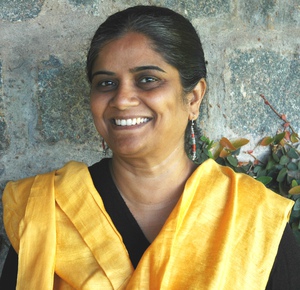Being born among this caste often means discrimination from the very moment of birth, writes Mari Marcel Thekaekara.
It’s been a horrid week. A young Dalit boy Rohith Vemula, a college student, committed suicide. Not an unusual occurrence. Dalit students often do that when the double burden of caste discrimination and humiliation becomes too much to bear. Doesn’t often make headlines though. Rohith captured the imagination of the media because of a suicide note that he wrote. It moved even cynical Indians, inured as we are to reports of rapes, Dalit and non-Dalit, murders and suicides. His farewell note was almost lyrical. His picture hit every headline and television channel, a smiling face. A nice face. A warm, friendly, engaging face. The image stayed with us longer than we thought it would. He said words to the effect, that no one was to blame for his death. It was the very fact of his birth that was a misfortune. Being born into a Dalit family most often means that you are cursed with discrimination from the very moment you are born.
Rohith’s suicide caused anger all over the country. Not merely among Dalits. Among students, among academics and in all decent people who read about it or watched the story unfolding on their TV channels. ‘But will his suicide bring change?’ That is the question.
Yesterday, I spent the day interviewing Dalit women from Navsarjan Trust. I've been on their Board for several years. I've met these women many times. Yet it left me in deep shock. We were meeting to talk about domestic violence. I was hesitant about asking rather personal questions. Yet I didn’t have to probe too much. Woman after woman started to relate their own life stories. Being beaten every day by alcoholic husbands. The daily cycle of humiliation, and verbal and physical abuse seemed never ending. The women could not stop talking. Some wept. It seemed cathartic. Certainly I had not foreseen anything like the magnitude of emotion and anguish that the interview appears to have unleashed. The floodgates once opened, went on and on.
One woman who was violently and repeatedly beaten by a vicious husband, was told, 'It's your fault, your tongue is too long; it provokes him. His arm is long too, so he hits you. Learn to be silent.’
Most women pinpointed the problem as 'Sharab (alcohol) and shak (suspicion).' A woman who managed to finally escape her husband's torture because her unusually supportive father decided she could return home, described her ordeal. 'He would never work. I had to work hard all day at a construction site carrying bricks on my head. I would come home and he would say “bitch lift up your skirt. Who has been screwing you.” He would check my vagina.’ I was stunned. Had never heard such a phrase before. Yet, the women assured me that it was commonplace. Many men did this. Called them whores and prostitutes at the slightest altercation and with no justification at all. Veena, name changed, said, 'We’re women in ghungat, (veiled women). Between working like dogs outside and at home, who would have the time or energy? Yet they accuse us, for no reason.'
Merely listening to their tales left me emotionally, mentally and physically drained by the end of the session. Yet the women who had told me their stories, wiped away their tears, seemed to dust away the sadness. They'd emptied out their anger and frustration. They seemed to mentally gird themselves with an inner strength. And then they were ready to face the world again. Fight for other women less strong than themselves. They were fearless and feisty.
'Come back,' they said to me. 'One day is not enough to tell you all our experiences.' I promised to return. I salute these women and Manjula Pradeep, their leader who has trained and inspired many Dalit women and fought with them to liberate them from feudal, primitive, bonds, both within and without Dalit society. I see them fighting and winning many more battles.
The force is certainly with them.
![ROHIT-VEMULA-590.jpg [Related Image]](/web/20160406013236im_/http://newint.org/blog/2016/02/02/rohit-vemula-590.jpg)



Comments on Reduced to immediate identity
Leave your comment
Registration is quick and easy. Plus you won’t have to re-type the blurry words to comment!
Register | Login
#1 chandrika sen sharma 02 Feb 16
#2 Ludwig Pesch 02 Feb 16
#3 ANITA CHRISTY 02 Feb 16
#4 Tt 02 Feb 16
#5 Prabir KC 03 Feb 16
#6 mari marcel thekaekara 03 Feb 16
#7 Betty 03 Feb 16
#8 Josette 03 Feb 16
#9 Jo Lateu 05 Feb 16
Subscribe to Comments for this article
Guidelines: Please be respectful of others when posting your reply.